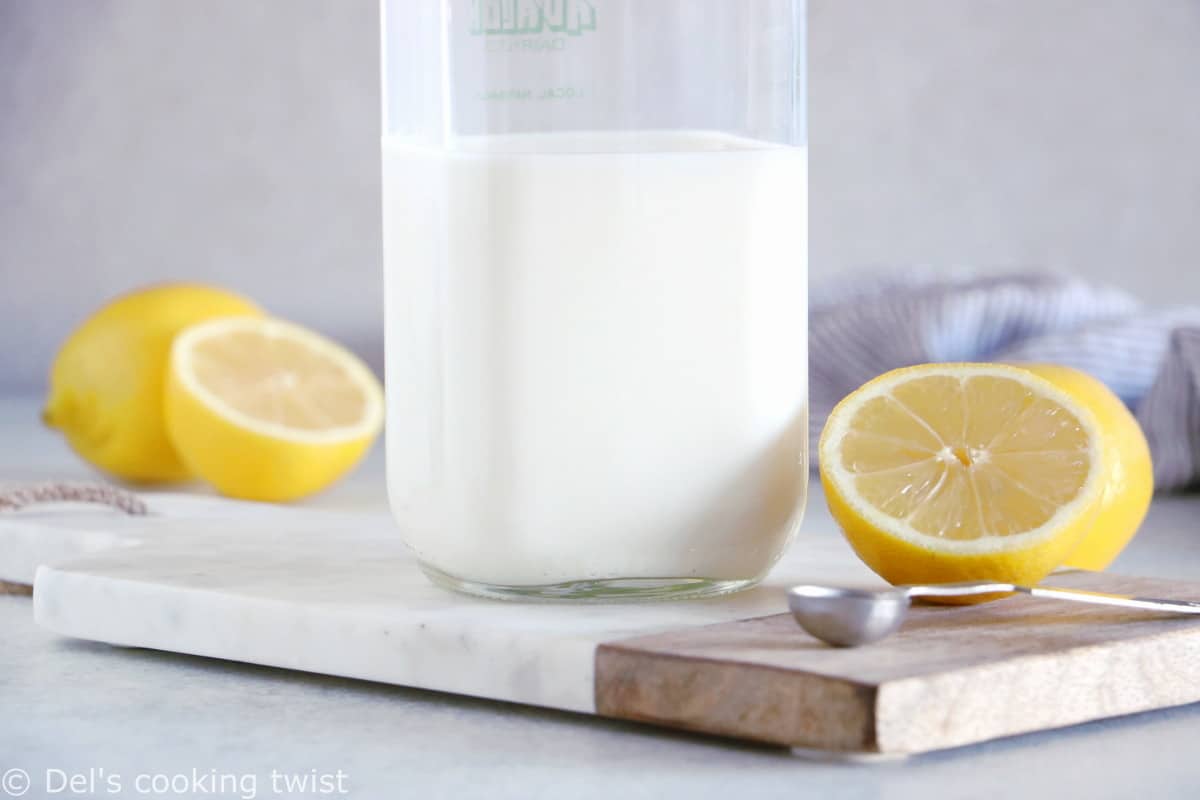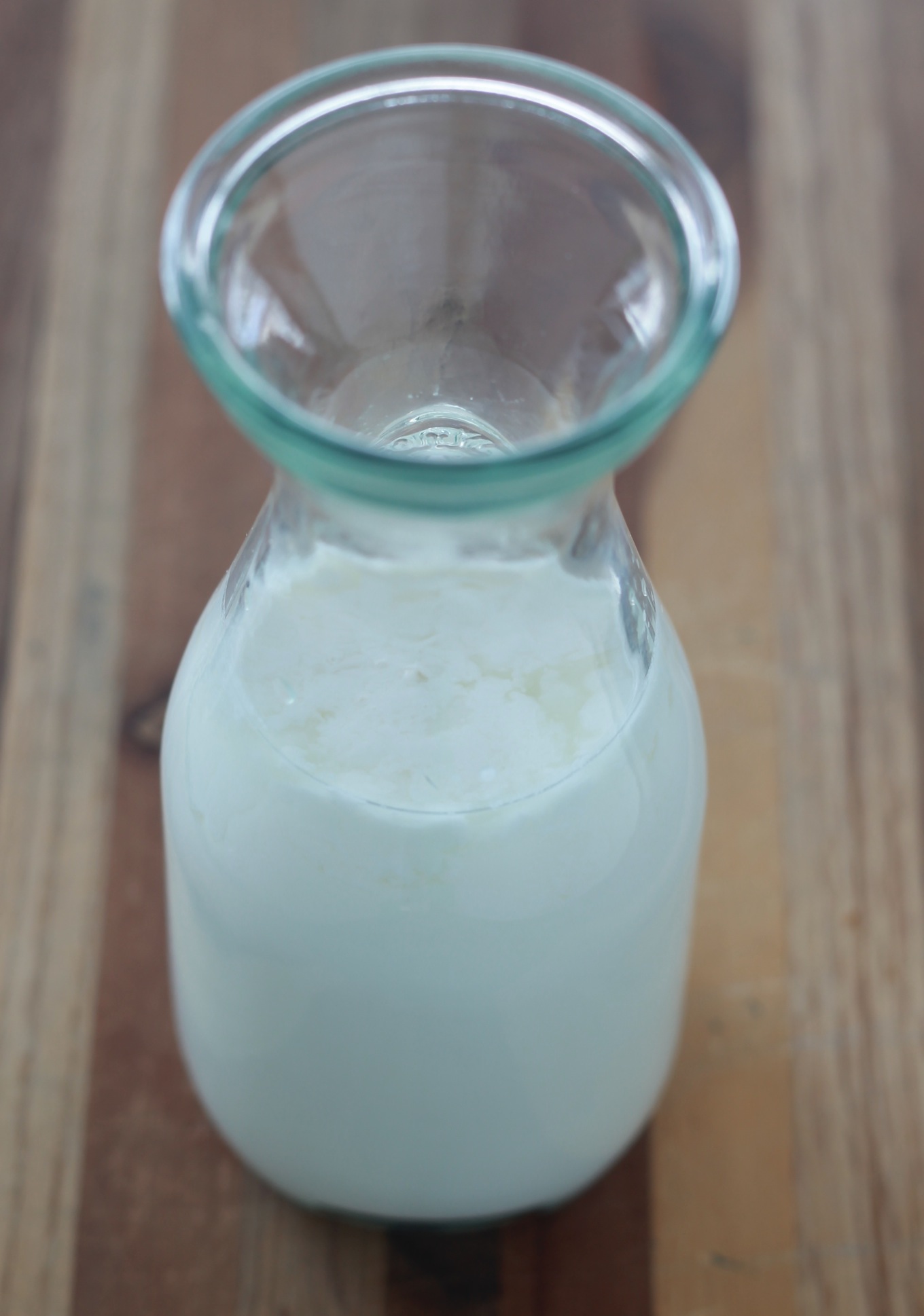Babeurre
buttermilk, curdled milk, soured milk
Soured milk denotes a range of food products produced by the acidification of milk. Acidification, which gives the milk a tart taste and unpleasant smell, is achieved either through bacterial fermentation or through the addition of an acid, such as lemon juice or vinegar. The acid causes milk to coagulate and thicken, inhibiting the growth of harmful bacteria and improving the product's shelf life. Soured milk that is produced by fermentation is more specifically called fermented milk or cultured milk. Traditionally, soured milk was simply fresh milk that was left to ferment and sour by keeping it in a warm place for a day, often near a stove. Modern commercial soured milk may differ from milk that has become sour naturally.[full citation needed] Soured milk that is produced by the addition of an acid, with or without the addition of microbial organisms, is more specifically called acidified milk. In the United States, acids used to manufacture acidified milk include acetic acid , adipic acid, citric acid (commonly found in lemon juice), fumaric acid, glucono-delta-lactone, hydrochloric acid, lactic acid, malic acid, phosphoric acid, succinic acid, and tartaric acid.
Source: Wikipedia


